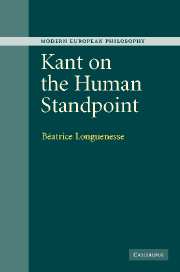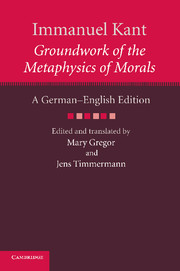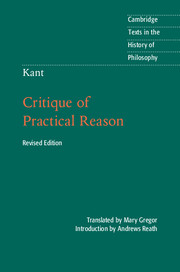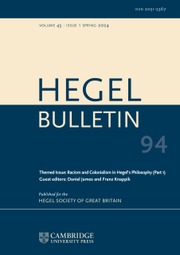Kant on the Human Standpoint
In this collection of essays Béatrice Longuenesse considers the three aspects of Kant's philosophy, his epistemology and metaphysics of nature, his moral philosophy and his aesthetic theory, under one unifying standpoint: Kant's conception of our capacity to form judgements. She argues that the elements which make up our cognitive access to the world - what Kant calls the 'human point of view' - have an equally important role to play in our moral evaluations and our aesthetic judgements. Her discussion ranges over Kant's account of our representations of space and time, his conception of the logical forms of judgements, sufficient reason, causality, community, God, freedom, morality, and beauty in nature and art. Her book will appeal to all who are interested in Kant and his thought.
- Kant's pioneering contribution to the discipline of anthropology
- A new translation
- Volume includes introduction and guide to further reading
Reviews & endorsements
"...a significant contribution to the project of exploring Kant's holistic and anti-foundationalist epistemology on the basis of a detailed textual analysis, a timely project undoubtedly inspired by the pioneering views of Michael Friedman." --Aaron Fellbaum, University of Graz: Philosophy in Review
Product details
June 2009Paperback
9780521112185
320 pages
229 × 152 × 18 mm
0.47kg
Available
Table of Contents
- Introduction
- Part I. Discussions:
- 1. Kant's categories and capacity to judge
- 2. Synthetics, logical forms, and the objects of our ordinary experience
- 3. Synthetics and givenness
- Part II. The Human Standpoint in Kant's Transcendental Analytic:
- 4. Kant on a priori concepts: the metaphysical deduction of the categories
- 5. Kant's deconstruction of the principle of sufficient reason
- 6. Kant on causality: what was he trying to prove?
- 7. Kant's standpoint on the whole: disjunctive judgement, community, and the Third Analogy of Experience
- Part III. The Human Standpoint in the Critical System:
- 8. The transcendental ideal, and the unity of the critical system
- 9. Moral judgement as a judgement of reason
- 10. Kant's leading thread in the analytic of the beautiful.






